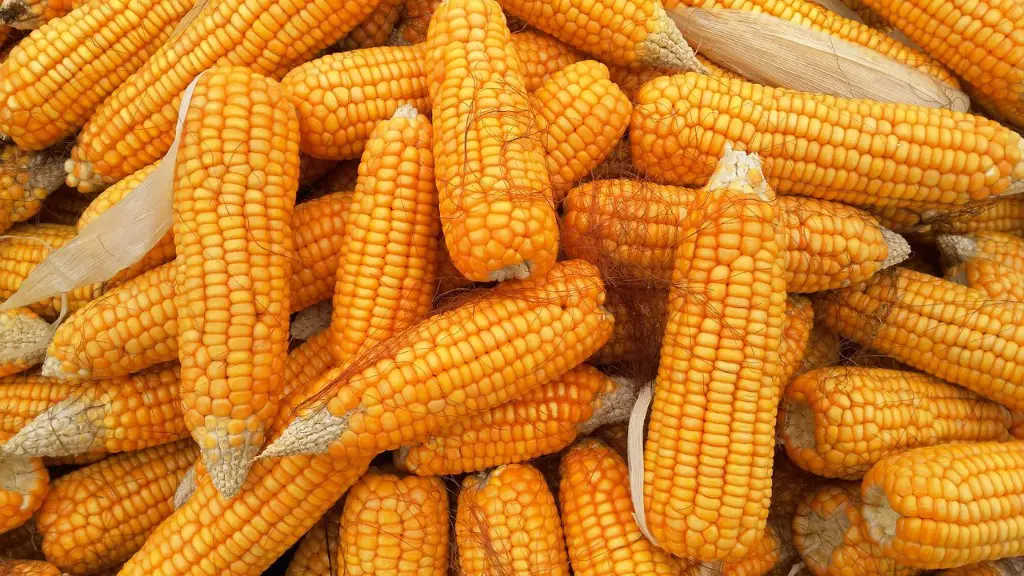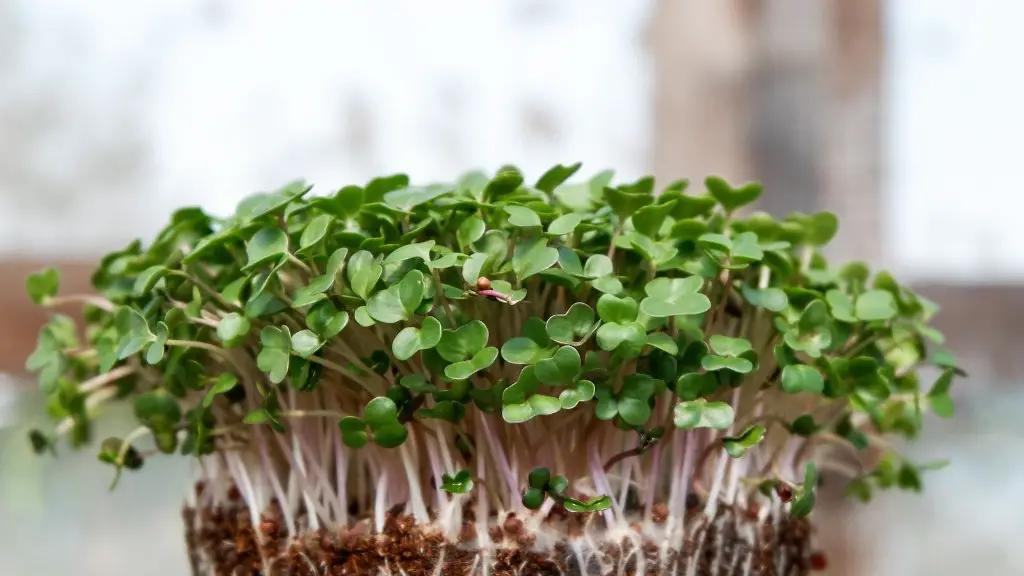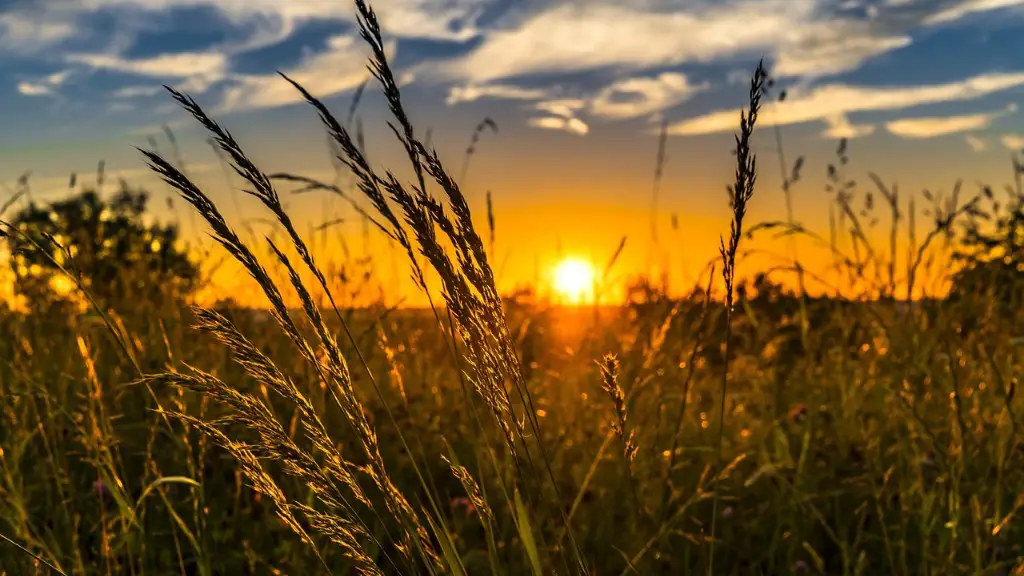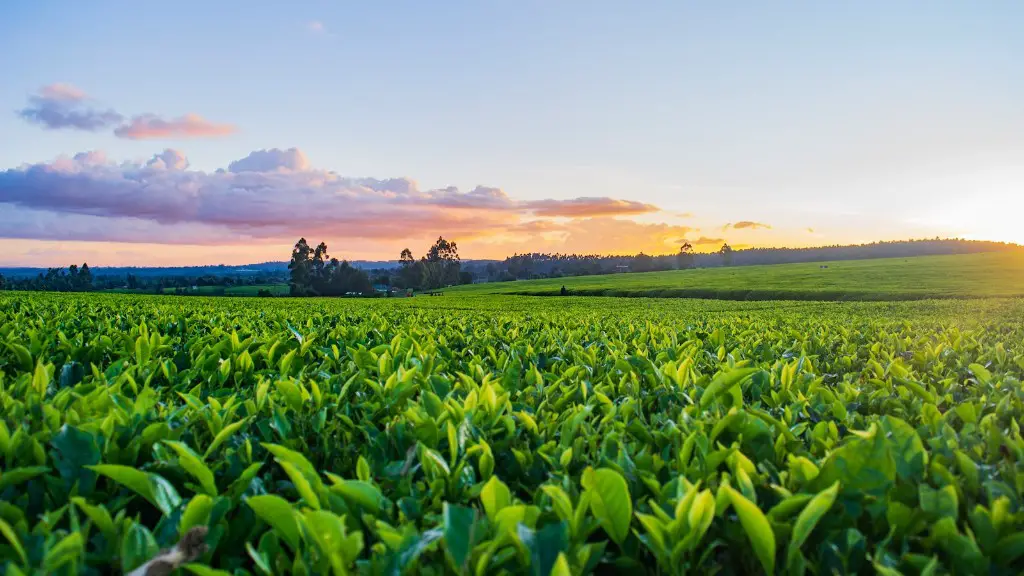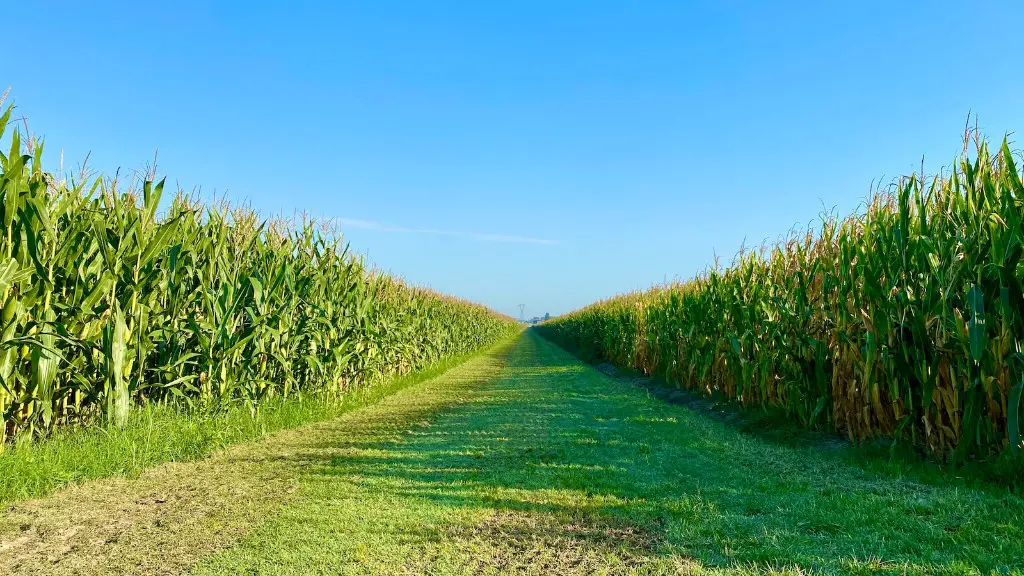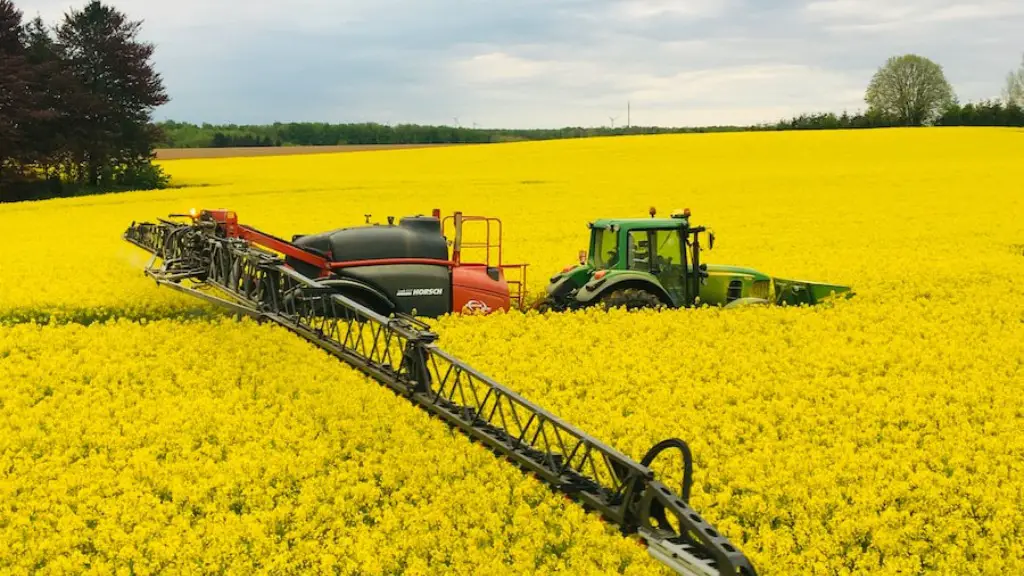Agriculture is an essential part of the global economy, but it also accounts for 70 percent of the freshwater used worldwide. As the sector is responsible for such a large quantity of water, it is critical for farmers to practice water-conserving techniques to keep their operations as sustainable as possible. Below are a few strategies to help farmers conserve water in their agricultural activities:
1. Use mulch to reduce water evaporation: Adding a layer of mulch to soil can reduce the need for irrigation by reducing water loss from evaporation. Mulch helps to keep the soil moist, making it a useful water-conserving tool to help farmers save water.
2. Utilize drip irrigation: Drip irrigation systems allow water to be delivered directly to the plants and soil at specific, preset locations, thereby improving the efficiency of water use and eliminating the risk of water waste. Not only does this strategy help save water, it also reduces labor costs by automating the irrigation process.
3. Implement water-efficient machinery and equipment: Upgrading to water-efficient machinery and irrigation equipment can significantly reduce the amount of water needed for farming operations. This includes installing water tanks, pumps, and filtration systems, as well as upgrading to high-efficiency sprinkler nozzles.
4. Minimize water runoff and soil compaction: Soil compaction and water runoff can be mitigated by using no-till farming practices, which helps conserve water by preventing soil erosion and reducing the need for additional irrigation. Planting cover crops can also reduce water runoff by providing a layer of protection to the soil.
5. Reuse water: Reusing farming water is a great way to reduce water usage while still ensuring the plants receive enough water for optimal growth. Reusing water from appliances such as washing machines, dishwashers, and sinks can be an invaluable resource for farmers and significantly reduce the amount of water used for irrigation.
Additional Strategies for conserving water in Agriculture
The strategies outlined above are just a few of the many ways to conserve water in agricultural operations. Here are four more strategies to help farmers save water:
1. Adapt irrigation strategies to local climate: To save water, farmers should adjust their irrigation strategies to the local climate by installing rain gauges and monitoring local weather forecasts. This can help farmers adjust their irrigation techniques to better match the climate and ensure plants are not over-watered.
2. Practice crop rotation: Crop rotation helps conserve water by replenishing soil nutrients, which can reduce the need for irrigation by providing plants with the necessary nutrients they need to thrive. Additionally, certain crops are more adapted to certain climates and may require less water, so rotating these crops can help reduce water demands.
3. Capture and store rainwater: Installing rain barrels or tanks to capture and store rainwater can help farmers reduce water consumption by providing a reliable source of water for irrigation. This can also help reduce wastewater use and improve the overall sustainability of the farming operation.
4. Utilize smart irrigation controllers: Smart irrigation controllers allow farmers to adjust their irrigation settings based on local weather conditions and soil moisture levels. This ensures farmers conserve water by providing only the amount of water needed to keep plants healthy.
Harvesting Water for Agriculture
Harvesting water for agriculture is a popular strategy for conserving water, particularly in areas with limited water resources. This form of water conservation entails capturing rainwater runoff and storing it for later use. For farmers, this means water stored in tanks or ponds can be used to irrigate fields in times of drought or other water-related crises.
In addition to harvesting water, farmers should also use water-saving technologies such as water filters, rain catchment systems, micro-irrigation systems, and water-efficient pumps. These strategies can help farmers reduce water needs and save money on water bills by ensuring water is used more efficiently.
Lastly, farmers should practice efficient water management by reducing water waste, optimizing irrigation schedules, and monitoring soil conditions. Adopting these practices can help farmers save water and improve crop productivity.
Maintaining Soil Quality for Water Conservation
Maintaining soil quality is essential for conserving water in agriculture. This can be done by promoting the use of organic fertilizers and improving soil drainage. Organic fertilizers improve soil’s water-holding capacity and can reduce irrigation needs as much as 40 percent, while improved drainages can reduce the amount of water lost through runoff.
Furthermore, farmers can utilize soil health tests to check their soil’s quality and make sure their crops are receiving the right amount of water. These tests can help farmers ensure their water usage is not having a negative impact on their soil’s health and help them adjust their irrigation practices accordingly.
In addition to soil health, other techniques such as using drip lines and sprinklers to optimize irrigation, utilizing water-conserving seeds and plants, and mulching to reduce water evaporation can all help save water while still keeping crops healthy and productive.
Water Recycling Opportunities for Agriculture
Water recycling is another great option for conserving water in agriculture. This practice entails collecting and reusing water for irrigation, which can reduce water use and costs significantly. Water recycling can be done through the implementation of water-treatment plants, which filter and purify wastewater for reuse in agricultural activities. The collected and treated water can then be used for irrigation and fertilizing, reducing the amount of fresh water needed.
Water recycling is an important water-conserving tool, particularly in areas that face water scarcity or drought-like conditions. With proper implementation, this strategy can increase water availability and reduce drinking water contamination, helping to make agricultural operations more sustainable.
Investing in Water Conservation for Agriculture
Investing in water conservation initiatives can help farmers reduce water use and save money in the long run. Farmers should focus on investing in effective technologies and practices that can help them save water, such as drip irrigation, water-efficient pumps, and rainwater harvesting systems. Additionally, farmers can take advantage of government grants or subsidies that are aimed at promoting water conservation in agriculture.
Furthermore, investing in education is a great way to ensure farmers are well-informed on the most effective water-conserving strategies. This can include attending workshops and taking courses on water conservation, as well as participating in research and demonstration projects to learn more about developing water-conserving practices.
Finally, farmers should take steps to protect water quality by minimizing pesticide runoff and reducing sedimentation. This involves implementing pollution control measures and monitoring water bodies that supply irrigation water. These measures can help protect water resources and ensure sustainable water use for agricultural operations.
